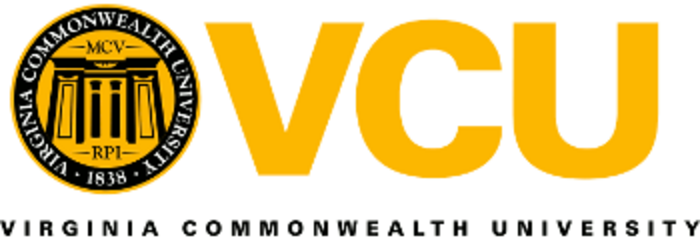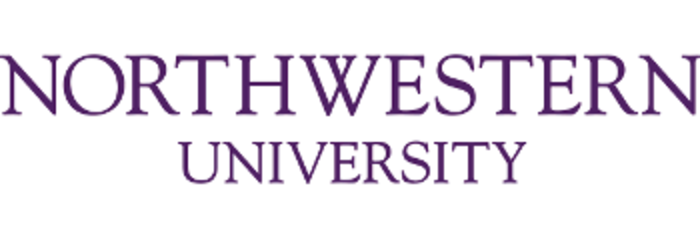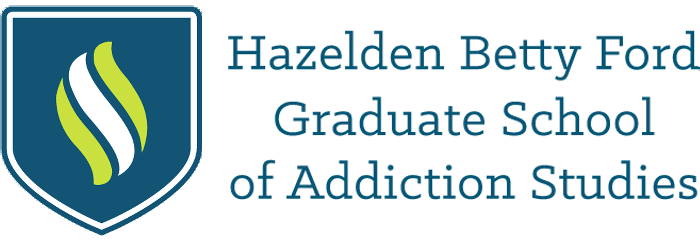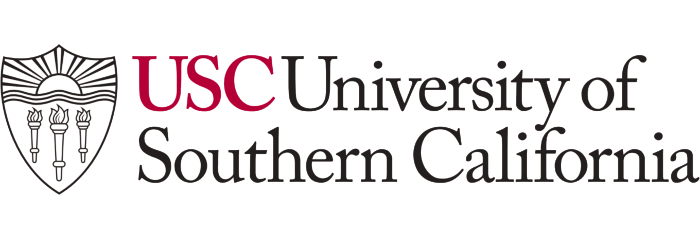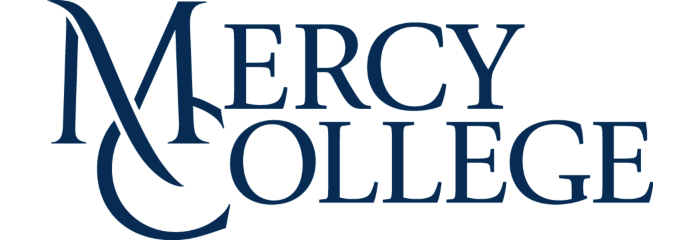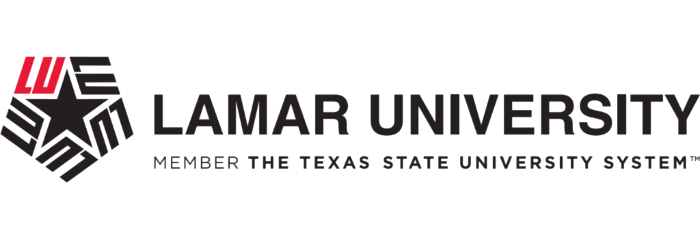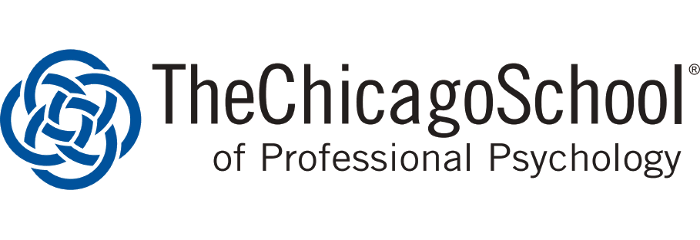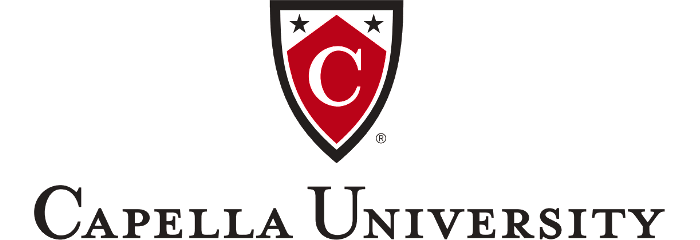2023 Best Online Master's in Counseling Degrees
The following list presents the top schools for online master’s in counseling degree programs. An online master's degree in counseling is designed to train students for careers that are dedicated to helping clients manage life's challenges and achieve emotional well-being. Earning a master's degree is also a necessary step for national counseling certification and state licensure. Professional counselors help clients identify and solve problems in order to modify unhealthy behaviors. According to the Bureau of Labor Statistics (BLS), the median annuage pay for substance abuse, behavioral disorder, and mental health counselors was $48,520, with a 23% demand in job prospects for these specialties.
View our methodology for more details about rankings or learn more about OnlineU.
Learn more about how we make money. ">ADVERTISEMENT
Online Counseling Master's Degrees You May Be Interested In

Arizona State University
Annual Tuition: $6,592 - $27,048
2 Programs (view all)
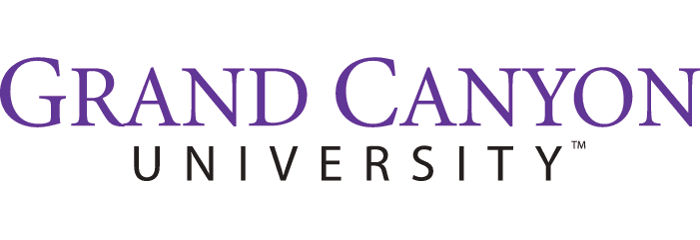
Grand Canyon University
Annual Tuition: $11,074
10 Programs (view all)

Liberty University
Annual Tuition: $8,475
33 Programs (view all)
2023 Best Online Master's in Counseling Degrees
| Rank | School | Salary Score | Median Starting Salary |
|---|---|---|---|
| Virginia Commonwealth University | $64,254 | ||
| Northwestern University | 84 | $54,060 | |
| Hazelden Betty Ford Graduate School of Addiction Studies | 83 | $52,906 | |
| Southern New Hampshire University Online | 81 | $51,100 | |
| University of Phoenix | 79 | $49,344 | |
| University of Southern California | 76 | $47,828 | |
| Mercy College | 75 | $47,163 | |
| Lamar University | 75 | $46,927 | |
| Chicago School of Professional Psychology Online | 73 | $45,806 | |
| Capella University | 72 | $45,453 |
2023 Online Colleges Offering Master's Degrees
Ranking Details
#1 Virginia Commonwealth University
- Salary Score: 93
- Median Starting Salary: $64,254
- Locations: Richmond (VA)
- Accreditation: SACS COC
Virginia Commonwealth University (VCU) is a four-year public university that offers an online Master of Science in Rehabilitation and Mental Health Counseling. Totaling 60 credit hours — including 40 credits of didactic courses, nine internship credits, and three elective credits — the program prepares students to sit for licenses and certification exams to become Licensed Professional Counselors in Virginia, a Certified Rehabilitation Counselor, or a Nationally Certified Counselor. In addition students must complete a total of 3,400 hours of supervised practice hours before sitting for a licensure exam to become a licensed counselor in Virginia.
At VCU, students can take an accelerated or part-time version of the program, depending on their obligations outside of school. It's also important to note that VCU adheres to a hybrid learning format, which includes online and in-person instruction.
#2 Northwestern University
- Salary Score: 84
- Median Starting Salary: $54,060
- Locations: Evanston (IL)
- Accreditation: HLC
Northwestern University (NU) is a medium-sized nonprofit offering an online Master of Arts in Counseling. The program comprises 24 credit hours, a 200-hour practicum, and a 600-hour internship. In addition, the program has a Child and Adolescent emphasis for students who want to counsel adolescents during their careers. Some of the core courses include Counseling Methods: Skills for Counseling and Psychotherapy, Psychopathology in Counseling, Cultural Diversity in Counseling, and Career Development. Students must submit transcripts (official and unofficial), letters of recommendation, resume or CV, statement of purpose, essay, test scores, application fee, and a current photo to apply for the program.
NU's online coursework prepares graduates to become clinical mental health counselors, and it's offered at a full- or part-time pace. Although most of the course is offered online, there are some in-person immersion requirements, including clinical experiences.
#3 Hazelden Betty Ford Graduate School of Addiction Studies
- Salary Score: 83
- Median Starting Salary: $52,906
- Locations: Center City (MN)
- Accreditation: HLC
Hazelden Betty Ford Graduate School of Addiction Studies is a private nonprofit offering an online Master’s in Addiction Counseling. Totaling 60 credit hours, the program lasts two years on a full-time schedule, though part-time options are available. The curriculum is designed to train students in managing and coordinating their future patients' mental health and addiction concerns based on treatments supported by evidence. For example, coursework may cover trauma-informed treatment and recovery management.
At Hazelden, the addiction studies program is offered every January, May, and September, providing flexibility for students to complete the online coursework on their own schedule. While the program is entirely online, students must still attend two in-person, on-campus residencies, and each lasts four days. In addition to the residency requirements, students must complete 900 hours of clinical or internship experiences before graduation.
#4 Southern New Hampshire University Online
- Salary Score: 81
- Median Starting Salary: $51,100
- Locations: Manchester (NH)
- Accreditation: NECHE
Southern New Hampshire University Online (SNHU) is a private nonprofit that offers an online Master of Arts in Clinical Mental Health Counseling for students interested in working in the clinical mental health field. The 60-credit-hour program provides flexibility and 24/7 access to all coursework and resources for students with busy schedules. In addition, the program requires students to complete two five-day, in-person residencies; a 100-hour practicum; and a 600-hour internship before graduation. Graduates are trained to become licensed professional counselors.
At SNHU, the coursework combines 90% online learning with 10% of face-to-face work in a hybrid format. The in-person requirements include two in-person residencies. In this way, students may enjoy asynchronous coursework that they can complete at their own pace while also benefiting from residencies that provide real-world experiences.
#5 University of Phoenix
- Salary Score: 79
- Median Starting Salary: $49,344
- Locations: Nationwide
- Accreditation: HLC
The University of Phoenix (UoPX) is a private, for-profit institution offering an online Master of Science in Counseling/Clinical Mental Counseling that prepares students for roles in the clinical mental health field. The 60-credit-hour program lasts approximately 35 months, with students gaining skills in human development, research, diversity, psychotherapy, and more. In addition, the program meets the qualifications for graduates to sit for California’s Licensed Professional Clinical Counselor (LPCC) exam to gain licensure. To achieve acceptance into the program, prospective students must complete an admission readiness assessment that takes six weeks, where they must develop a graduate portfolio.
At UoPX, online students have 24/7 access to their coursework, which they can finish at their own pace. Their virtual learning environment offers the opportunity for students to gain one-on-one connections with faculty and experience team-building with peers.
#6 University of Southern California
- Salary Score: 76
- Median Starting Salary: $47,828
- Locations: Los Angeles (CA)
- Accreditation: WSCUC
The University of Southern California (USC) is a large, private nonprofit offering an online Master of Education in School Counseling for students who desire to become K-12 school counselors. The 49 credit-hour program lasts approximately two to three years, with the option to be a full- or part-time student. In addition, students are required to complete a 100-hour practicum and a 600-hour internship during the program. Areas of focus for the program include College and Career Readiness, Restorative Justice, and Trauma-Informed Practice. The application requirements for the program include the following: a bachelor’s degree from an accredited institution, transcripts, resume, letters of recommendation, GPA of 3.0 or higher, statement of purpose, and two short-answer responses.
At USC, students have scheduled live classes in a digital format on a weekly basis, which is paired with asynchronous coursework that students may complete at their own pace. After completion of the online program, graduates are eligible for the Pupil Personnel Services Credential within California.
#7 Mercy College
- Salary Score: 75
- Median Starting Salary: $47,163
- Locations: Dobbs Ferry (NY)
- Accreditation: MSCHE
Mercy College offers an online Master of Science in Counseling for students interested in becoming K-12 school counselors. The program requires 60 credit hours, with students eligible to sit for the exam to become licensed or certified New York school counselors after graduation. Coursework covers counseling intervention for children and adolescents, counseling and ethics, research methodology, and multicultural perspectives. Admission requirements include a bachelor’s degree from an accredited institution, a minimum 3.0 GPA, two letters of recommendation, a resume, and a personal statement.
At Mercy, full- and part-time schedule options are available to students, encouraging working professionals to further their studies. Mercy's coursework is 100% online, with 24/7 flexibility.
#8 Lamar University
- Salary Score: 75
- Median Starting Salary: $46,927
- Locations: Beaumont (TX)
- Accreditation: SACS COC
Lamar University (LU) — a medium-sized, public institution — offers two online master's of education in counseling programs: (1) Master of Education in Clinical Mental Health Counseling and (2) a Master of Education in Counseling & Development. The latter program has two concentration options: Marriage Couple & Family Counseling and Professional School Counseling. Each program totals 60 credit hours and lasts approximately 30 months, with the ability to start the program throughout the year. An online application, application fee, minimum 3.0 GPA, and official transcripts are required for admission to each program.
At LU, coursework meets the requirements to become a Licensed Professional Counselor and/or Licensed Marriage and Family Therapist in Texas. It also includes a residency, 15-week practicum, and 15-week internship.
#9 Chicago School of Professional Psychology Online
- Salary Score: 73
- Median Starting Salary: $45,806
- Locations: Multiple Locations
- Accreditation: HLC
Chicago School of Professional Psychology (TCSPP) is a private nonprofit offering an online Master of Arts in Clinical Mental Health Counseling for students pursuing a career in this field. The three-year, part-time program offers a range of courses, such as Diagnosis of Mental Health Issues, Group Theories and Processes of Counseling, and Assessment of Individuals. Students must complete a 100-hour practicum and 600-hour internship during the program’s duration. In addition, students must attend two mandatory residencies during their first and second year. Admission requirements include a standard application, application fee, essay, official transcripts, and three letters of recommendation.
At TCSPP, coursework is offered through the instructional website Canvas in both asynchronous and synchronous formats.
#10 Capella University
- Salary Score: 72
- Median Starting Salary: $45,453
- Locations: Minneapolis (MN)
- Accreditation: HLC
Capella University — a medium-sized, private, for-profit institution — offers three online counseling degree programs: (1) a Master of Science in Clinical Mental Health Counseling, (2) Master of Science in Marriage and Family Therapy, and (3) Master of Science in School Counseling. All three programs, which are 72 credit hours each, offer online coursework but also require completing in-person residencies, internships, and practicums. Career paths for these programs include school counselor, mental health counselor, and substance abuse/addiction counselor.
At Capella, all coursework for each program is provided through the instructional website, Guidepath.
Overview of Online Master's Degrees in Counseling
Online master's programs in counseling aim to provide students with the theoretical knowledge and practical skills they need to help others optimize their mental health through behavioral changes, goal setting, and problem solving. Programs typically cover some methods for building therapeutic relationships with clients, such as outlining useful communication skills and how to work effectively with diverse populations. In addition, a counseling master's program delves into the clinical skills necessary for providing treatment, such as identifying emotional issues and suitable treatment options.
When thinking about what a master's degree in counseling may entail as well as a resulting career, it's helpful to keep in mind the five types of counseling, as defined by the American Psychological Association (APA):
1
Psychoanalysis and Psychodynamic Therapy
This type of counseling delves into the unconscious realm in an attempt to reveal hidden motivations behind people's actions.
2
Behavioral Therapy
Under this umbrella that emphasizes environmental factors, counselors may evoke techniques such as operant conditioning, classical conditioning, desensitization, and cognitive-behavioral therapy.
3
Cognitive Therapy
With cognitive therapy, counselors are concerned with changing their clients' thought processes, first and foremost, by focusing on an internal locus of control.
4
Humanistic Therapy
This type of therapy is heavily invested in a client-centered approach, emphasizing a client's concerns by validating their perceptions and emotions.
5
Holistic/Integrative Therapy
This is probably the most common approach among counselors, as it combines aspects from different branches of therapy to create a holistic treatment plan that best suits individual clients.
How Long Does It Take To Earn a Master's in Counseling?
Most master's in counseling programs — whether online or in-person — take two years if you decide to study at a full-time pace. If you decide to pursue a program part time, however, it can take anywhere from three to four years to finish your degree. Online degrees often offer students the flexibility to either pursue a full- or part-time schedule, and many of these programs are also asynchronous, meaning that students can study and complete assignments at their own pace.
Students must usually complete approximately 60 credit hours to graduate. Counseling programs may also require practicums that take roughly 600 hours under the supervision of trained counseling professionals.
What Are the Requirements for a Master's Degree in Counseling?
A bachelor's degree from an accredited university is required for enrollment in an online master's degree in counseling. Most graduate schools prefer that students major in sociology or psychology, but they may accept undergraduate degrees in unrelated fields. It may also be helpful to have some experience in counseling, such as volunteer or professional opportunities.
In general, when applying to a counseling master's program, applicants will most likely need to submit the following:
- Undergraduate transcripts
- Letters of recommendation
- Resume
- GRE scores
- Personal statement
Master's in Counseling Specializations
Students may choose to specialize by selecting an emphasis within counseling to treat targeted populations. This process means choosing electives in a specific area of interest, which generally requires the approval of a program advisor.
Child and Adolescent Counseling
Students enrolled in this specialization strive to grasp the unique family, developmental, or learning difficulties faced by children and teenagers. They take classes in cognitive therapy, child psychology, and early childhood development while also learning how to identify behavioral disorders or emotional difficulties in young patients. Given their training, graduates often find careers providing counseling services to children and their families.
Marriage and Family Counseling
In this specialization, students focus on working with individuals facing marital or other family-related difficulties. Aside from learning how to conduct individual and group counseling sessions, they take classes in family counseling theory, psychotherapy and sexuality, and career development counseling for couples. Graduates are trained to work with people facing various personal and professional difficulties that affect relationships and are well-suited to take on marriage and family counselor roles.
Clinical Mental Health Counseling
Individuals who choose mental health counseling take courses in psychological testing, medication, and diagnosing behavioral disorders. Unlike others, this specialization focuses more directly on clinical practice, encouraging students to gain hands-on experience treating individuals from different backgrounds. This specialization is a good option for graduates who hope to work directly with patients rather than those who may be more interested in a research-focused role.
Rehabilitation Counseling
The rehabilitation counseling track is ideal for students who are interested in helping people with disabilities and those recovering from an injury or accident. Individuals primarily learn how to use therapy to boost patients' confidence or otherwise help them cope with the psychological effects of a chronic or life-changing injury. Graduates often study special concepts related to rehabilitation and are prepared to work as rehabilitation counselors in hospitals, outpatient clinics, and nursing homes.
School Counseling
The school counseling specialization is specifically designed for individuals who want to help students improve their mental health. It includes classes in multiculturalism, trauma treatment, and college advising and trains students to recognize common disorders that often emerge in educational settings. This specialization equips individuals to work as counselors at K-12 schools, universities, or other educational settings where students may need additional support.
Substance Abuse Counseling
In substance abuse counseling — also called substance use and misuse counseling — students take courses in group therapy, toxicology, behavioral disorders, and research methods, to name a few areas. This specialization covers the theories and practices professionals use to treat people with drug, alcohol, or other chemical-related dependencies. Students also complete a number of supervised clinical hours and are generally prepared to work as entry-level substance abuse counselors once they graduate.
Common Courses in a Master's in Counseling Program
Core course requirements in a counseling master's curriculum help students become effective communicators, understand fundamental counseling methods and techniques, and deliver emotional support. While titles for core courses and electives may vary across school programs, learning outcomes and objectives remain similar. Below are some common courses in an online master's program in counseling:
Counseling Theory and Techniques
Coursework may emphasize how intrapersonal and interpersonal communication skills are necessary to develop fundamental counseling skills. Students may work on building listening skills, empathy training, basic interviewing techniques, and performing clinical observations.
Ethical Standards and Professional Issues in Counseling
Lessons generally cover the foundation of ethical practices in terms of being a responsible counselor. Topics may include the study of models for ethical decision-making, ethical codes of professional organizations, and client rights.
Life Span of Human Development
Instruction generally provides an overview of human growth and development, from childhood to adulthood, and how information processing looks different in various stages of life.
Research and Evaluation in Psychology
Coursework often explores statistics and research models, design, and strategies. This allows students to identify, evaluate, and implement practical research methods and better understand how research informs evidence-based practices.
Social and Cultural Foundations of Counseling
This course typically reviews how gender, cultural diversity, religious preference, socioeconomic status, sexual orientation, and disability impact the counseling process for both the counselor and the client.
How to Choose a Master's in Counseling Program
Individuals hoping to earn a counseling master's degree should ensure their prospective program aligns with their personal and professional goals. Some aspects they may want to consider include state licensing requirements, placement programs for graduates, and internship opportunities. Below is a list of additional considerations students can take into account when deciding on a counseling program.
Accreditation
It is essential for students to enroll in an institutionally accredited counseling program, as this will help them receive a quality education that employers recognize. Individuals enrolling in a master's program should ensure their specific program is accredited by the Council for Accreditation of Counseling and Related Educational Programs (CACREP). This kind of programmatic accreditation confirms that the course content, practicum experience, faculty qualifications, and overall mission of a given degree meet best practices for instruction in the counseling field.
Cost
According to our internal data, an online Master's in Counseling can cost anywhere from about $10,000-$50,000 in annual tuition fees. Of course, this amount can be lessened if you receive any financial aid, scholarship or grant money, and/or in-state residency status. Additionally, earning your online degree can provide a more affordable option than a traditional, in-person degree. It allows you to also avoid daily transportation and moving costs, which can be substantial. However, it's still important to factor in the cost of learning materials, such as books and other supplies you may need.
Online vs. Campus
For students considering distance education, it may be important to determine whether an online counseling program offers learners sufficient resources. This may include regular check-ins with faculty and advisors and 24/7 tech support. Given that counseling programs involve an in-person internship or practicum experience, students may also want to check whether an online program helps them identify and apply for programs at healthcare facilities to gain the required hours of clinical experience.
Research vs. Clinical
While many master's degrees prepare students to work as licensed counselors, others focus more on research and writing, training students for jobs in academia, think tanks, and similar sectors. Individuals considering a master's in counseling should therefore explore their career goals before enrolling, as this will likely determine whether they want to select a program that emphasizes research or one that focuses on clinical training.
What Can You Do With a Master's Degree in Counseling?
According to the American Hospital Association, a growing national behavioral health crisis has created a significant shortage of counseling professionals that is expected to last through 2030. With counselors likely to be in high future demand, graduates may find employment in schools, hospitals, nursing homes, outpatient clinics, and health facilities. Aside from healthcare, they may also go on to work in education, financial services, and public administration. Below is a list of potential career paths counseling graduates can take in these sectors.
Marriage and Family Therapist
Marriage and family therapists work with married couples, families, and their children to help resolve differences in their relationships. They may do so through one-on-one or group therapy sessions but focus largely on helping individuals develop decision-making tools, practice strategies to navigate difficult situations, and identify emotional or other behavioral triggers. Some marriage and family therapists specialize in areas such as divorce or bereavement.
Psychologist
Psychologists research the various factors that affect human behavior. For instance, they may study the social environment, cognitive processes, or political circumstances that lead to certain behavioral disorders, or they may conduct trials to test theories in psychoanalysis. Many psychologists also teach at the postsecondary level, where they design courses, mentor students, and carry out administrative responsibilities.
Rehabilitation Counselor
Rehabilitation counselors typically support vulnerable populations in overcoming a range of physical, mental, or developmental difficulties. They develop health plans to help individuals meet their goals or adjust to new life circumstances stemming from an injury or illness. These professionals may also advocate on behalf of their clients, providing information on their unique needs or communicating with health providers on their behalf.
Social and Human Service Assistants
The main goal of social and human service assistants is to provide support to professionals such as social workers, psychologists, or addiction counselors. Their day-to-day work may include a range of tasks, from filling out paperwork and taking patient histories to helping patients secure benefits, communicating with insurance companies, and informing individuals about the services they need.
Substance Abuse Counselor
Substance abuse counselors support individuals, families, or groups that are managing or recovering from chemical dependencies. In group sessions and one-on-one meetings, they help patients develop coping mechanisms to overcome behavioral disorders. They often educate clients and their families about the effects of alcohol and other drugs on mental and physical well-being.
Certification and Licensure
Every state across the U.S. requires licensure for professional counselors to practice. Licensure ensures that these health and human services professionals are adequately trained and have the necessary field experience. Prospective counselors must complete 2,000-4,000 hours of clinical experience, pass an exam, and earn national certification to apply for a state license.
The National Board for Certified Counselors (NBCC) offers the National Certified Counselor (NCC) exam as its primary credential. Those who earn their NCC designation are eligible to apply for state licensure — also administered by the NBCC — to become a Licensed Professional Counselor (LPC), Licensed Mental Health Counselor (LMHC), Licensed Clinical Professional Counselor (LCPC), or Licensed Professional Clinical Counselor (LPCC), depending on the state.
Is a Master's in Counseling Worth It?
Ultimately, becoming a counselor depends on your personal, professional, and financial goals. You may also want to consider your temperament and whether you'll enjoy the work after graduation. For example, counselors tend to be kind, generous, cooperative, patient, empathetic, and friendly. They enjoy socializing and teaching others, which is often what draws them into counseling careers.
It's also helpful to contemplate whether earning your counseling master's degree online will work well with your learning style. In general, completing a graduate program online can be convenient if you can't relocate or simply need to fit classes around your busy schedule. On the other hand, it may be harder to stay motivated when completing asynchronous online classwork and to study without a rigid class schedule. Below are some other pros and cons to consider when deciding on whether to pursue an online master's degree in counseling.
Potential Benefits
- Mental health professionals are in high demand. There is a shortage of mental healthcare practitioners throughout the country, but according to the Health Resources and Services Administration, the need for counselors is the highest in the Western U.S.
- Counseling work can be satisfying. According to CareerExplorer, those who provide counseling services find their job satisfying and rewarding. In fact, counselors are in the top third of careers in terms of job-related happiness.
- Attending online school can save time and money. Earning a degree online can be less expensive than a traditional on-campus degree. For example, online students don't have to pay for on-campus housing or relocation costs. Distance learning also means that students don't have to commute to and from campus.
Potential Drawbacks
- An online master's degree in counseling may have a low return on investment. For example, substance use, behavioral disorder, and mental health counselors earn a median wage of $47,660, according to the BLS. Yet, annual tuition rates can cost as much as $53,850, and the average student loan debt in the U.S. is $36,510.
- Some counselors may have to work irregular hours. For example, mental health counselors at inpatient facilities may have to work evenings, nights, and weekends, which can infringe on their personal time. If a clearly delineated work-life balance is an important factor in one's career choice, this role may not be a suitable fit. Even those who decide to start their own private practice may have to be available whenever there is a need.
- Earning an online degree may feel isolating and limit relationship-building opportunities. It can be hard to feel motivated to study when doing so from home, and distance learning may not suit everyone's learning style. Forming meaningful relationships may also be challenging in an online environment because it could take more effort.
FAQs About Online Master's in Counseling Degrees
What Is the Highest Degree in Counseling You Can Earn?
The most advanced degree you can get in counseling is a Doctorate in Psychology, which usually takes between five and seven years to complete.
What Is the Difference Between an MA and an MS in Counseling?
A Master of Arts in Counseling is more liberal arts based, while a Master of Science in Counseling has a more scientific and evidence-based approach that relies on research and statistics.
What Is the Difference Between a Counselor and a Social Worker?
While social workers and counselors perform some of the same functions, a social worker's main role is to help individuals, groups, and families cope with everyday challenges by connecting them with a wide range of services. A counselor, on the other hand, is most likely to focus on only one service related to mental health and well-being. Counselors have more of a direct approach, whereas social workers help steer their clients in the right direction.
How Much Does a Counselor Make With a Master's Degree?
Salaries vary based on location, industry, and the type of counseling services provided. The bottom 10% of substance use, behavioral disorders, and mental health counselors earned less than $30,870, while the top 10% earned over $77,980 in 2021.
Why Trust Us?
27 Data Researchers
60,000 Degrees Researched Annually
20,000 Hours Spent on Research Annually
Launching Rankings Since 2009
Related Articles
2023 Best Online Christian Counseling Degrees
Find the best online Christian counseling degrees available in 2023 at the bachelor's level from our list of accredited schools.
By OnlineU Staff Writers | 2/13/2023

